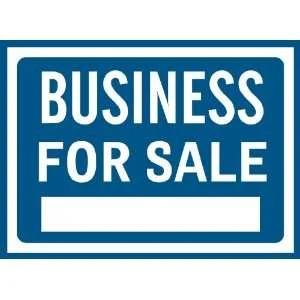How to Determine the True Value of a Business for Sale?

When considering buying a business, one of the most crucial steps is determining its true value. This process can be particularly complex, requiring a blend of financial analysis, market understanding, and due diligence. Whether you’re eyeing a local shop or an international enterprise, especially in dynamic markets like the UAE, understanding the genuine value of a business for sale is essential to making a sound investment. Here, we’ll explore key methods and considerations for accurately valuing a business.
Understanding the Importance of Accurate Valuation
Accurate valuation is fundamental for several reasons:
Informed Decision-Making: Knowing the true value helps buyers make informed offers and negotiations.
Financial Planning: It ensures that buyers understand the financial commitment and potential returns.
Risk Assessment: Proper valuation identifies potential risks and liabilities.
Common Valuation Methods
There are several established methods to determine a business’s value. Each has its own merits and is suitable for different types of businesses and situations.
1. Asset-Based Valuation
Asset-based valuation considers the business’s total assets minus its liabilities. There are two main approaches:
Going Concern Approach: Assumes the business will continue operating and values its assets accordingly.
Liquidation Value Approach: Assumes the business will cease operations, valuing assets at their net liquidation price.
This method is straightforward but may not fully capture the business’s earning potential or intangible assets like brand value and customer loyalty.
2. Earnings-Based Valuation
This approach focuses on the business’s ability to generate profits. Common methods include:
Price-to-Earnings Ratio (P/E): This ratio compares the business’s market price to its earnings per share.
Discounted Cash Flow (DCF): Projects future cash flows and discounts them to present value, considering the time value of money.
Earnings-based valuation is highly relevant for profitable businesses, providing insight into future profitability and growth potential.
3. Market-Based Valuation
Market-based valuation compares the business to similar companies that have recently been sold. Key techniques include:
Comparable Company Analysis (CCA): Looks at similar businesses in the same industry and region.
Precedent Transactions: Reviews past sale prices of similar businesses.
This method relies on current market conditions and is particularly useful in active markets like UAE Business for Sale, where there is a wealth of comparable data.
Factors Influencing Business Value
Several factors can significantly impact the value of a business. Understanding these can help buyers and sellers alike.
1. Financial Performance
A business’s historical financial performance is a primary indicator of its value. Key metrics include:
Revenue Trends: Consistent growth or stability is more attractive.
Profit Margins: Higher margins often indicate better management and operational efficiency.
Cash Flow: Positive and consistent cash flow suggests a healthy business.
2. Market Position and Potential
The business’s position within its market can greatly influence its value. Consider:
Market Share: Larger market share often equates to higher value.
Competitive Landscape: A business with a unique selling proposition or less competition may be valued higher.
Growth Potential: Industries with strong growth prospects can drive higher valuations.
3. Operational Factors
The business’s internal operations also play a crucial role in its valuation:
Operational Efficiency: Well-established processes and systems enhance value.
4. Intangible Assets
Intangible assets, although harder to quantify, are essential components of a business’s value:
Brand Value: Strong brand recognition can command a premium.
Intellectual Property: Patents, trademarks, and proprietary technology add significant value.
Reputation: Positive reputation and customer satisfaction drive higher valuations.
Conducting Due Diligence
Thorough due diligence is crucial to accurately determine a business’s value. This process involves:
Financial Audits: Reviewing financial statements, tax returns, and accounting practices.
Legal Review: Checking for any legal issues, pending litigations, or compliance concerns.
Operational Analysis: Assessing the business’s operations, processes, and staff.
Market Analysis: Understanding the industry, market trends, and competitive landscape.
Engaging professionals such as accountants, lawyers, and business valuers can provide deeper insights and ensure a comprehensive assessment.
Conclusion:
Determining the true value of a business for sale is a multifaceted process that requires a blend of different valuation methods, understanding of market conditions, and thorough due diligence. By considering financial performance, market position, operational factors, and intangible assets, buyers can gain a clear and accurate picture of a business’s worth. In vibrant markets like the UAE Business For Sale, leveraging these approaches ensures that investors make informed, strategic decisions, ultimately leading to successful acquisitions and business ventures.

 Virginia Business Blueprint: How to Kickstart Your Entrepreneurial Journey
Virginia Business Blueprint: How to Kickstart Your Entrepreneurial Journey  The Role of Udyam Registration in Atmanirbhar Bharat Abhiyan
The Role of Udyam Registration in Atmanirbhar Bharat Abhiyan  Mango Costs in Pakistan 2024: A Total Diagram
Mango Costs in Pakistan 2024: A Total Diagram  Why Professional Power Management Can Make or Break Your Event
Why Professional Power Management Can Make or Break Your Event  Experience The Thrill Of Zipline Dubai With Captain Dunes
Experience The Thrill Of Zipline Dubai With Captain Dunes  Exploring London’s Best Butcher Shops
Exploring London’s Best Butcher Shops  Enhance Your Shop Appeal with Sydney’s Best Carpentry Services
Enhance Your Shop Appeal with Sydney’s Best Carpentry Services  A Detailed Look at the Features of the LEGO Technic Mars Crew Exploration Rover
A Detailed Look at the Features of the LEGO Technic Mars Crew Exploration Rover